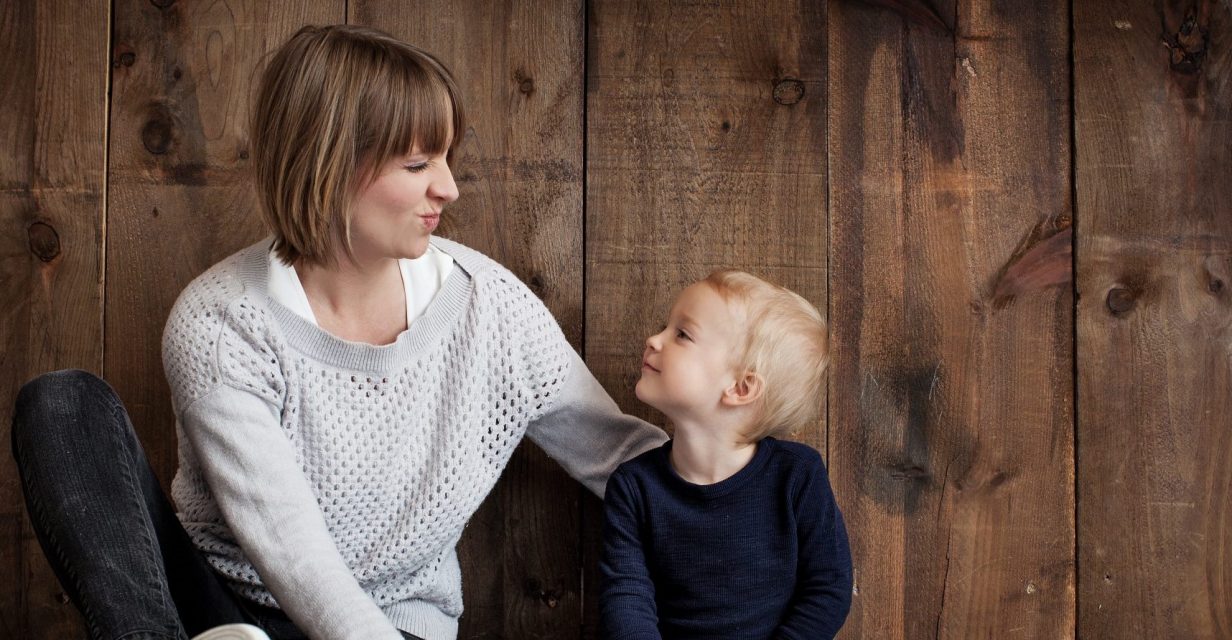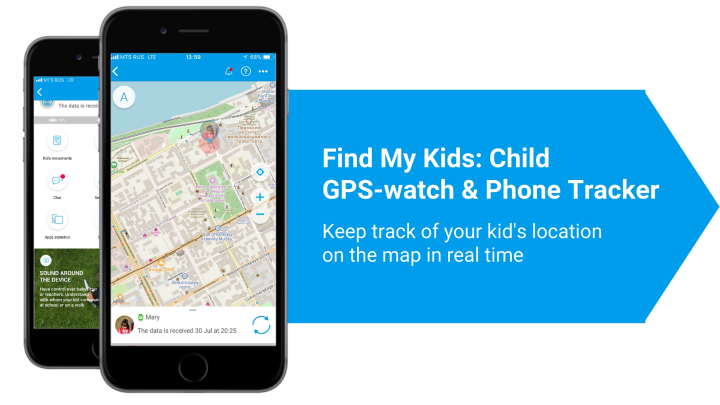Questions Every Parent Should Ask Their Kid

Honest communication is the cornerstone of every healthy relationship. Getting to know your children is often taken for granted. One will always have a deep connection to the children that you raised, but this doesn’t mean that you should neglect to strengthen relationships by asking the right questions. Questions for kids need to be open-ended, giving parents a powerful way to understand them better.
Contents:
- The Benefits of Asking Your Kids the Right Questions
- Essential questions every parent must ask their kids
- Examples of ineffective questions
- Keep Communication Going
The Benefits of Asking Your Kids the Right Questions

Prostock-studio/Shutterstock.com
Asking your kids questions openly opens up endless avenues for understanding each other and the family better. Better understanding means improved child development, stronger relationships, and fuller expressions of love from both parent and child. As you form a better bond with your kid, you support them with a complete range of developmental benefits.
Here are just some of the ways that talking to your kids help you connect:
- build habits of connection;
- lessened academic pressure;
- improve emotional vocabulary;
- identify inner thoughts & outside views;
- encourage complex and creative thought;
- independence recognition within peer settings;
- fortify ethics, moral values, and accountability;
- early resolution of negative situations & thought patterns.
Essential questions every parent must ask their kids

Prostock-studio/Shutterstock.com
Families should ask questions based on these five concepts every day. You’re sure to breed open and clear communication with our insight and tips.
What are you most grateful for today?
Gratitude coats the mind in a protective bubble that makes every aspect of negativity a little less significant. Teach your children how to express gratitude to improve their overall happiness, mental clarity, and to give them better social skills in handling and navigating relationships. Life cannot be appreciated nor enjoyed fully without realizing the full scope of appreciation, and it all starts with one step. Even preschoolers can be taught to show gratitude so start early.
What did you ask today?
Instead of drilling your kids over what they learned, which usually translates to a jerk-response brick-wall, encourage them to think about what they wondered about throughout the day. Asking this question reminds youth that the quest for knowledge always begins by asking, and all the information is there to be found.
What did you do for yourself today?
Happiness begins within. Children need to be encouraged to remind themselves that they come first while at the same time upholding healthy humility. Until you discover yourself through doing the things that you choose on your own merit, guidance is futile. Simple acts of self-gratification go a long way towards building good character given the right family guidance.
What moved you the most today?
Now, this may not be a question for preschoolers but it does show a lot at an older age. Not every day is sunshine and roses. That’s why one can’t ask what the best event of the day was, or what made your child the happiest. From a gloomy place, that’s hard to contemplate. Rather delve even deeper. Encourage broad emotional reasoning by asking what happening moved them the most.
Questions to ask your kids about school and learning

Prostock-studio/Shutterstock.com
Questions about school and learning must always be kept for when your child has had some time to separate from the cycle of education. Follow these tips. Pick your timing right, and remember that being told what you want to hear can’t compare to honesty. Stay open and non-critical. Funnier is always better, promoting honesty and clarity.
What did you enjoy the most at school today?
Asking about your child’s favorite subject, lesson, or even a classroom hiccup found funny grants great insight into how they see the school experience. Each day is part of a journey of learning, with the focus often falling outside of books. Keep track of your kid’s personal interests in education but don’t direct their choices.
What was the most useful thing you’ve learned lately?
Practical application is the stepping stone that cements information into knowledge. Asking your kids about the most useful thing learned is another fantastic way to get a gauge of where they’re going. It often tells you more about their direction and strengths than a standard report card or evaluation.
Was there anything you would have taught in class today?
Teachers don’t know all the answers. A curriculum is a guideline leading group thought, not individual interest. Every-so-often, your child will encounter something that they either know more about or want to know more about. These are the areas that you need to fuel. Just don’t smother them.
Social development & relationship questions

Prostock-studio/Shutterstock.com
Social questions should start young. Toddlers are already forming relationships. Before you question, or rather at times interrogate, your older kids about a person or group of people – pause. You’ll learn nothing about their feelings and friends. Wait until the air is clear and try again.
Who made you laugh today?
Laughter is the best medicine, and this is far more than just a time-old adage. From the perspective of a parent, it’s not only the value that a smile brings to your child but also the insight granted from the context of the joke. A healthy will have a staple supply of funny moments from their friends and musings.
Who did you feel for the most today?
Compassion shows that one values themselves and thus those around them. By thinking of others, your child will develop into a compassionate human being. Empathetic qualities cannot be nurtured without considering what others feel. Empathy is essential to encouraging healthy physical interaction and therefore living a full, rich life.
Which teacher was the most motivated in class today?
Your kid won’t always give an answer when questioned, but when he or she does, you’ve got an insight into the traits that your child admires. The personality aspects brought to the fore by the behavior of an emotional, perhaps enraged or enthusiastic, a teacher shows you the things that your kid relates to.
 |
Install the app FindmykidsStop asking your child annoying questions like “Where are you?” and “Are you okay?” |
|
 |
 |
|
Questions to ask your kids about health & well-being
Learning what your loved ones like to eat and how they feel reveals far more than basic diet and health info. If you knew how they felt and what they’ve been eating, it’s easy to pick up on latent health or emotional issues.

Prostock-studio/Shutterstock.com
What was the most interesting food at lunch today?
No one minds being questioned about food. Once you get your kids discussing friends and food, you’re at a comfortable place to begin understanding their preferences, and circle of friends. Something small like switching up a staple lunch item for something a friend had and your child liked often makes all the difference to the day, keeping school fresh and fun.
Did you feel tired or sleepy at school?
If your child is healthy and at any age applicable to school going, then they should be active and awake for the whole day. It’s normal to be fatigued after a day’s hard work hitting the books, perhaps followed by sport. However, if your child is falling asleep at the desk by noon, then they could need a more nutritious diet, or emotional support if stressed.
Are there any interesting activities after school that you’re interested in?
Extra-curricular activities need to be encouraged. Not every child will have the same interests so pay keen attention to their personality and suitability to any endeavor or sport before pushing them in that direction. Your kid doesn’t have to have a school hosted activity in mind, but they should show a personal interest in hobbies, pass times, and personal development in general.
Questions regarding parental support & physical aid

Prostock-studio/Shutterstock.com
Loving families are always doing their best to support their children, but kids don’t always tell us everything. Good support takes basic questioning.
Did you run out of anything?
Your children often have so much on their mind that they forsake basic supplies by accident. While not everyone likes keeping an itemized inventory, it is, however, a good idea to keep a basic check on things. Ask infrequently regarding books, pens, highlighters or any other school stationery that may be needed.
Is there anything that would help make the school better or easier?
Keep this question for when your child is keenly devoting their attention toward a certain subject or area of study. The motivation from your eagerness to equip their endeavor may be exactly what they need to push through at peak productivity.
What was the biggest problem you had to overcome?
Discussing problems promotes bonding significantly but only when the problem is being viewed objectively. When kids become used to analyzing a situation from a non-emotional standpoint, they learn keen problem solving and social skills.
Examples of ineffective questions

Prostock-studio/Shutterstock.com
The majority of kids will turn away from certain angles of approach. If it looks like you’ve got an agenda or are addressed something too directly, you’ve got a problem. Rather stay general, and stick to happy subjects and honest, emotional questioning.
What did you do at school today?
Sharing what your child’s day was like with the rest of the family is a vital step in growing your relationship. However, it’s not the best idea to start off asking what they did or learned at school. It’ll probably be the last thing they want to talk about straight after a long day. Give your young ones some time to relax and change focus. They’ll be far more likely to openly discuss school later.
What did you learn today?
The number one cliché doesn’t work on every student. Some studious kids will thrive on telling you what they found out about their favorite subject, fact or thing. Most kids clam up, seeing the question as stressful. Its broad nature, combined with the essence of responsibility in the asking, makes this question a no-no.
What would you change about today?
Life is now. Don’t breed an attitude of regret, excuses, and living in the past. If you would like to discuss change, then instead envision tomorrow as a family but always with a view of positivity, shared growth, and respect for the infinite nature of creativity. Change is now. The past is gone. Keep your discussions present.
Keep Communication Going

Prostock-studio/Shutterstock.com
Staying in transparent communication with your kids is all about bonding. Show your children how much you appreciate them by considering their view in every question that you ask, and they’re on a springboard for personal success.
If you know of any mothers, fathers, grannies or aunts who are looking for a connection with their kids, we encourage you to share this article. A snippet of insight is often all that it takes to bring about change, and a happier life for a child.

Prostock-studio/Shutterstock.com
Проверьте электронный ящик




















